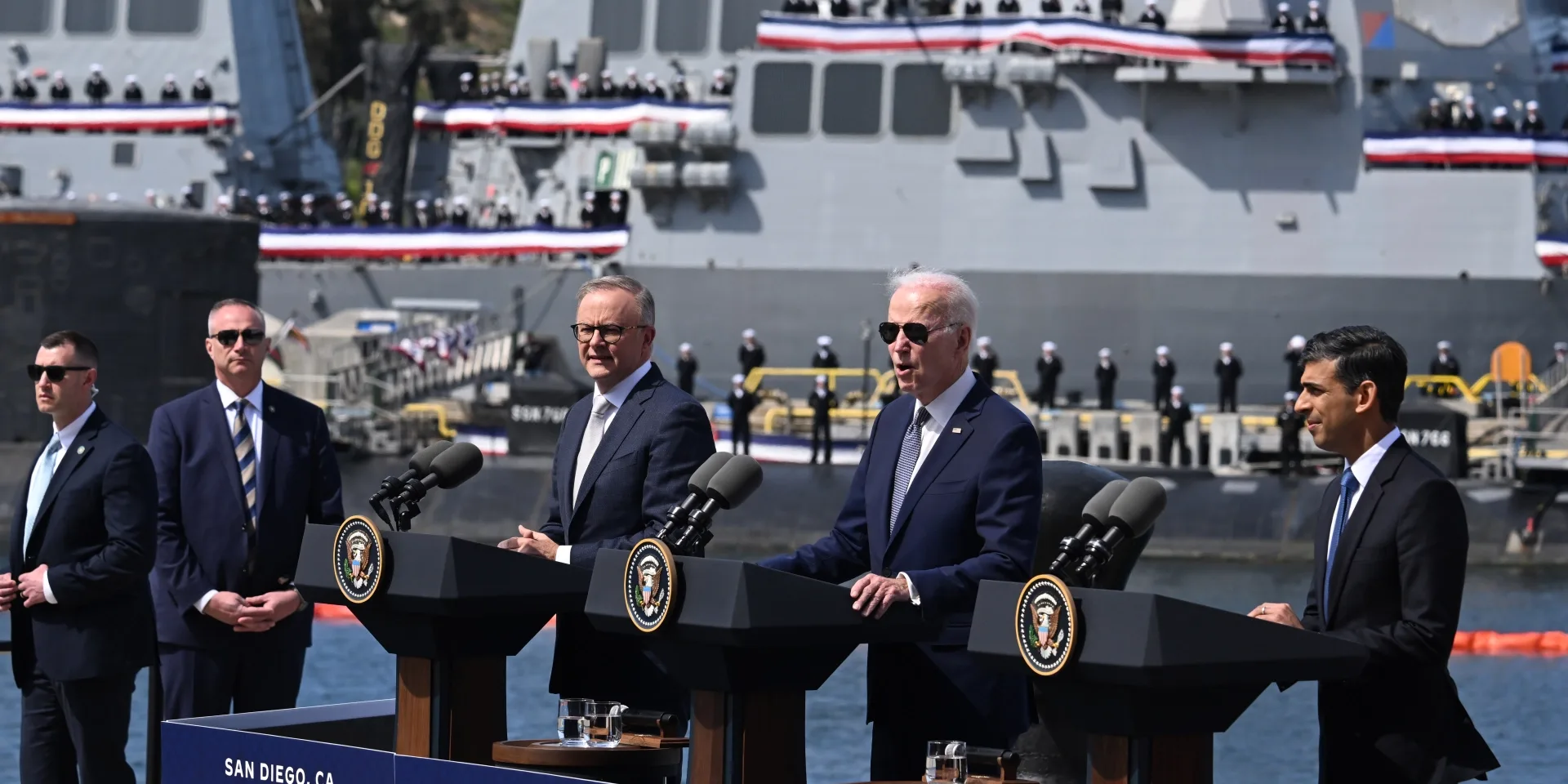The recent announcement of the AUKUS agreement, which will provide Australia with nuclear-powered submarines, has once again highlighted Europe’s lack of military capabilities. With the UK leaving the European Union and Europe lacking nuclear triad capabilities, Europe is struggling to play an equal role with its traditional Western allies.
Effects of Brexit
Brexit has created a power vacuum in Europe, leaving the continent without a nuclear power. The UK’s departure from the EU means that Europe is without one of its most powerful military forces. This has made Europe more vulnerable to external threats and has left it unable to participate equally with other Western allies.
The lack of nuclear triad capabilities is another major issue for Europe. The nuclear triad refers to the ability to launch nuclear attacks from the sea, air, and land. With the UK’s departure from the EU, Europe has lost a key element of its nuclear triad capabilities. This makes Europe more vulnerable to external threats and leaves it unable to participate equally in strategic decisions made by its Western allies.
Lack of Military Capabilities
Europe’s lack of military capabilities is not just limited to nuclear power. Europe also lacks a globally capable military. While individual European nations have strong militaries, there is no unified European military force. This has made it difficult for Europe to project power globally and to play an equal role with other Western allies.
The European Union’s common security and defense policy (CSDP) has made some progress in this regard. The CSDP aims to develop a common defense and security policy for the EU. However, progress has been slow, and the CSDP remains largely ineffective.
Join the Movement for a Stronger Europe
Welcome to Forward Europe, a political party committed to the rise of Europe as a force for good in the world.
Please sign up for our weekly newsletter and stay informed about the latest developments in the fight for a sovereign Europe.
Together, we can make a difference.
Subscribe now!
The EU’s lack of military capabilities has also been highlighted by its response to recent crises. For example, during the 2011 intervention in Libya, the EU was unable to provide adequate support for the mission. The EU relied heavily on the US and NATO to provide the necessary military capabilities.
Implications for Europe
The AUKUS agreement is an example of how Europe is unable to play an equal role with its traditional Western allies. With Australia receiving nuclear-powered submarines from the US and the UK, Europe is left without an equivalent military capability. This means that Europe will be unable to participate in strategic decisions made by its Western allies, such as the Indo-Pacific region. Furthermore, Europe’s lack of military capabilities makes it more vulnerable to external threats.
The AUKUS agreement also highlights Europe’s inability to project power globally. With no unified European military force, Europe is unable to play an equal role with other Western allies in areas such as the Indo-Pacific region. This leaves Europe vulnerable to external threats and diminishes its role as a global player.
Way Forward: A Globally Capable EU Military
Europe’s lack of military capabilities is a problem that cannot be ignored. The AUKUS agreement has highlighted how Europe is unable to play an equal role with its traditional Western allies. Without a globally capable military, Europe is vulnerable to external threats and is unable to project power globally.
It is imperative that Europe takes steps to address this issue and develops a unified military force. This will ensure that Europe can play an equal role with its Western allies and can protect its interests both at home and abroad. The EU must work towards creating a unified military force that can match the capabilities of its traditional Western allies. This will allow Europe to project power globally and to participate equally in strategic decisions made by its Western allies.

Furthermore, it is also important for Europe to address the issue of nuclear triad capabilities. Europe must ensure that it has the ability to launch nuclear attacks from the sea, air, and land, in order to deter potential threats and to participate equally in strategic decisions made by its Western allies.
In addition, the EU must also invest in its military capabilities and technology, in order to match the capabilities of its traditional Western allies. This will require a significant investment of resources, both financial and human, but it is a necessary step in order to ensure Europe’s security and global influence.
In conclusion, the AUKUS agreement has exposed Europe’s lack of military capabilities and highlighted the urgent need for the EU to develop a unified military force. Without a globally capable military, Europe is unable to play an equal role with its traditional Western allies and is vulnerable to external threats. It is imperative that Europe takes steps to address this issue, in order to protect its interests both at home and abroad, and to project power globally.






